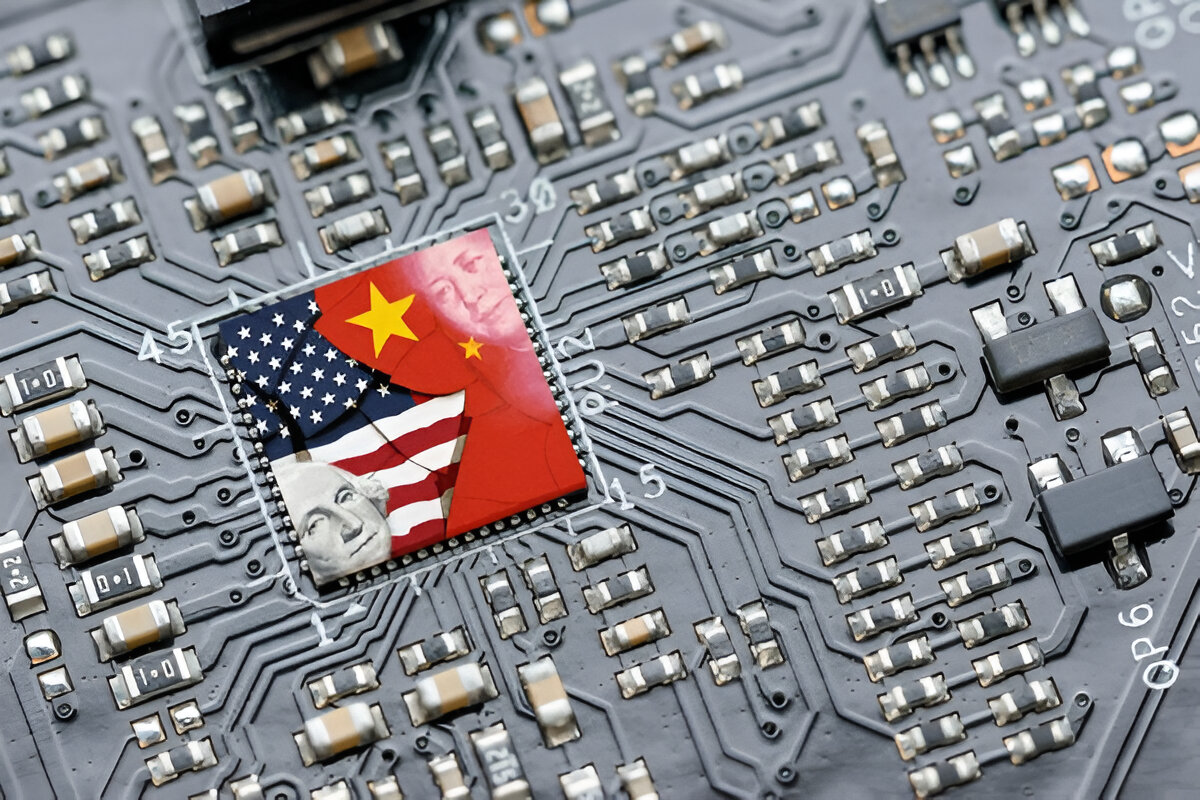As the U.S.–China tech rivalry Samsung, SK Hynix, and TSMC. The move could significantly restrict their access to U.S.-made semiconductor manufacturing equipment in China, impacting production and heightening global supply chain risks. U.S. Scrutinizes Chipmaker..
The VEU designation, initially introduced to streamline trade with trusted foreign firms, enabled these companies to import sensitive equipment and technologies into China without the need for repeated license applications. However, sources now say those permissions, renewed in 2023 and 2024, could soon be revised or revoked, depending on upcoming policy enforcement reviews.
The Origins of the VEU Status
In October 2022, the U.S. implemented sweeping restrictions on the export of advanced chipmaking equipment to China, citing national security concerns. However, to avoid major disruptions, Washington granted temporary authorizations to foreign firms like Samsung and SK Hynix.
These permissions later evolved into VEU status, a classification maintained by the U.S. Commerce Department. According to the department’s official description, VEU status allows designated companies to receive certain U.S.-controlled items “more easily, quickly and reliably.” For companies operating high-value chip fabs in China, the designation was critical for uninterrupted production.
Yet, this privilege doesn’t come without strings attached. A source familiar with the terms confirmed that these authorizations include strict compliance clauses, including reporting requirements and prohibitions on specific categories of equipment.
Potential Repercussions of VEU Revocation
If the U.S. moves to suspend or revoke the VEU authorizations, the impact on chipmakers could be immediate and severe. These firms would no longer be able to import advanced U.S. chipmaking tools—vital for processes under the 10-nanometer threshold—without undergoing case-by-case license approvals. That would lead to delays, uncertainty, and increased operational costs.
Samsung and SK Hynix have invested billions in memory chip production facilities in China, while TSMC’s smaller Nanjing plant focuses on logic chips used in various consumer electronics. All three rely on tools from Applied Materials, Lam Research, and KLA, none of which immediately responded to recent inquiries about the situation.
A Muted Response from Industry Leaders
When approached for comment, TSMC declined, and both Samsung and Hynix did not immediately respond. Their silence underscores the delicate balance they must maintain between U.S. regulatory compliance and their Chinese business interests.
The Commerce Department, when asked about the review of VEU privileges, stated that chipmakers “will still be able to operate in China.” A spokesperson emphasized that the evolving export controls aim to establish a level playing field by enforcing the same licensing mechanisms across all semiconductor firms operating in or exporting to China.
Benefiting Chinese Rivals?
Several industry insiders believe that making it harder for U.S. toolmakers to serve international clients operating in China could unintentionally benefit Chinese semiconductor competitors. A source familiar with the matter even called the move “a gift” to China, explaining that local rivals could quickly step in to fill gaps created by foreign suppliers’ restrictions.
China has been heavily investing in domestic chip development under its “Made in China 2025” strategy. The country sees semiconductor independence as essential to national development and has committed billions toward achieving it. Any disruption to Samsung, SK Hynix, or TSMC operations could accelerate this push and make space for Chinese firms like SMIC and YMTC to expand their presence.
Geopolitical and Economic Tightrope U.S.
The renewed scrutiny places U.S. allies like South Korea and Taiwan in a challenging position. These countries rely on U.S. defense partnerships but have strong economic dependencies on China. Samsung and SK Hynix derive a significant portion of their semiconductor revenues from Chinese customers, making any U.S. policy shift a potential source of internal conflict.
Furthermore, global supply chains would feel the ripple effects. Any delay or drop in output from these fabs could result in shortages or price hikes for smartphones, laptops, automotive chips, and AI hardware worldwide.
The Road Ahead U.S.: Fragile Equilibrium
The Biden administration must now decide whether tightening control on chipmaking exports is worth the collateral disruption. While the goal is to safeguard national security and prevent advanced technology from empowering rival states, the complexity of global semiconductor networks makes this task anything but straightforward.
If the U.S. revokes VEU status for these multinationals, it won’t just affect Korean and Taiwanese companies. It could also hurt American equipment suppliers like Applied Materials and KLA, whose international sales are anchored in Asia.
As the situation unfolds, the world watches closely. In the race for semiconductor dominance, every regulation, license, and export policy becomes a strategic move—with winners and losers on all sides of the global tech chessboard.
Update By TrendToday360







Leave a Reply